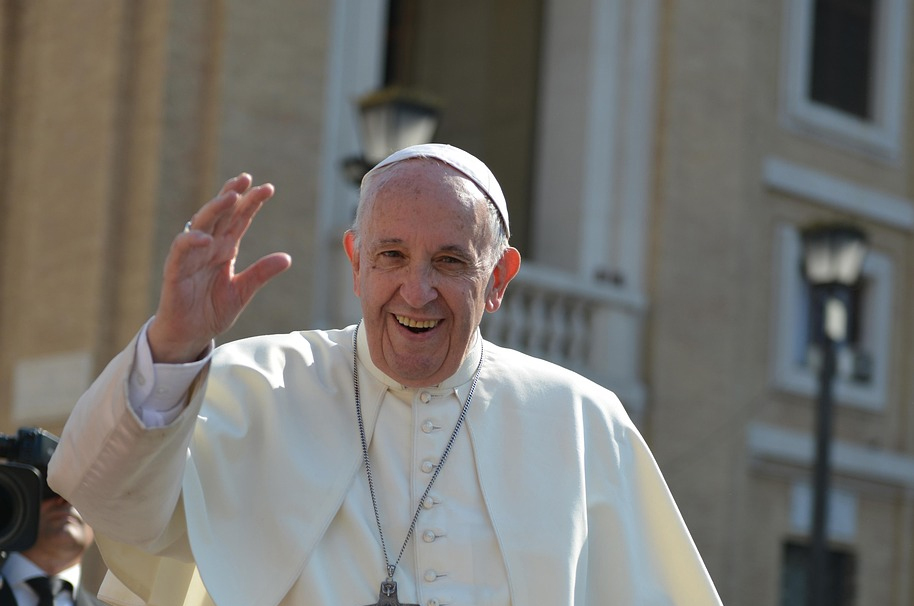In the days following Pope Francis’s passing at age 88, the world paused to reflect on the impact of this remarkable man who reshaped the Catholic Church for our modern era. As the first Latin American pope, the first Jesuit pope, and the first to take the name Francis, he broke new ground from the moment of his election in 2013, steering the Church in a new direction ( though actually, an old direction ) that emphasized Gospel example, inclusion and care for the marginalized. Through his actions and his words, he embodied a vision of the Church that was deeply rooted in the example of Christ, and responsive to the challenges of our time.
In this blog, I want to focus on Pope Francis’s amazing, personal impact on the Church and the world.
In his autobiographical books, Life, My Story Through History, and Hope: The Autobiography, Pope Francis articulated the essence of his vision—a vision that resonated with the Cardinal electors at the conclave who chose him to lead the Church. At its core was a simple yet profound truth: “When the Church does not come out of herself to evangelize, she becomes self-referential and then gets sick.” Pope Francis arrived at this understanding of the church’s flawed institution, and the need for reform, through years of practical experience, study, and struggle.
Let me endeavor to unpack his vision.
Firstly, evangelization means showing Christ to the world through love, compassion, and authentic witness. If the Church failed in this mission to follow Christ, which it often did, it would turn inward, becoming sick and preoccupied with institutional survival and concerns rather than serving as the living embodiment of Christ’s kingdom on earth. The Church is the kingdom of Christ on earth, not the kingdom of the world. Throughout his pontificate, Francis demonstrated an unwavering commitment to evangelization or the following of Christ. His approach wasn’t defined by abstract theological concepts but by concrete actions that mirrored Jesus’s own ministry. He embraced the sick, welcomed the stranger, advocated for the poor, and extended mercy to those on the margins of both society and the Church. This Christ-like approach of Pope Francis is what’s meant by evangelization, and was evident in countless moments: wading into crowds despite security concerns, embracing babies, the disabled, the disfigured, and prisoners. Each gesture spoke volumes about his priorities and his understanding of what it meant to be a shepherd in the model of Christ, the true head of the church.
Secondly, Pope Francis spoke critically about what he called a “self-referential” Church—one that becomes so focused on the institution that it becomes rigid and loses sight of its evangelical mission to embody Christ’s love and compassion. He used the phrase “spiritual worldliness,” in his autobiography, to describe a self referential Church, a Church turned in on itself, seeing the institution as primary and being blind concerning the failures to live by the healing example of the gospel. This led him to confront difficult issues that had long plagued the Church, from financial malfeasance to abuses of authority within the institution, and to the cover-up of sexual abuse. He recognized that these institutional failings weren’t merely PR problems to be managed but profound contradictions of the Gospel message that demanded honest acknowledgment and substantive reform.
Francis’s pontificate was marked by a creative tension between doctrinal continuity and pastoral practice. While some critics accused him of undermining traditional Catholic teaching, his actual approach was more nuanced. He didn’t reject orthodoxy or doctrinal purity, but insisted they must be accompanied by genuine witness in following Christ’s example of love. Jesus likewise cautioned against doctrinal, lip-service, insisting that His followers should, not only hear His word, but follow it (Luke 11:28). This approach was evident in Francis’s frequent emphasis on the primacy of conscience, openness to dialogue with those who felt alienated from the Church, and willingness to reconsider pastoral approaches to complex moral issues. Throughout, he maintained that the essence of Christianity lies not in rigid adherence to rules but in following Christ’s teachings and, particularly Christ’s example of love and mercy.
At the heart of Pope Francis’s vision was an understanding of the Gospel as a living, transformative force rather than a static set of propositions. He repeatedly drew attention to the Beatitudes, the parables of Jesus, and Christ’s new commandment to “love one another as I have loved you” as the foundational elements of Christian life. This emphasis on personal encounter with Christ and the transformative power of the Gospel distinguished his approach from that which focused primarily on doctrinal formulations or institutional maintenance. For Francis, Christianity is fundamentally about conversion, being changed from within, by an encounter with Christ’s love and then extending that love to others by example.
Through his words and actions, Pope Francis reminded the Church and the world that Christianity at its core is about following Christ—about embodying His compassion, extending His mercy, and building a community that reflects His love, especially for those most in need.
In a world increasingly marked by division, inequality, and indifference, Francis offered a powerful counter-witness: a vision of a Church that doesn’t exist for itself but for the sake of the gospel, for the sake of manifesting Christ to the world. This vision wasn’t just his personal preference—it was what the Church is called to be at its best. And in living out this vision with courage and conviction, he has left the Church and the world a deep, and lasting gift.
—Fr. Hugh Duffy, Ph.D.








0 Comments
YOU MIGHT ALSO LIKE
Easter: A Message of New Life
The Prodigal Son
Transfiguration